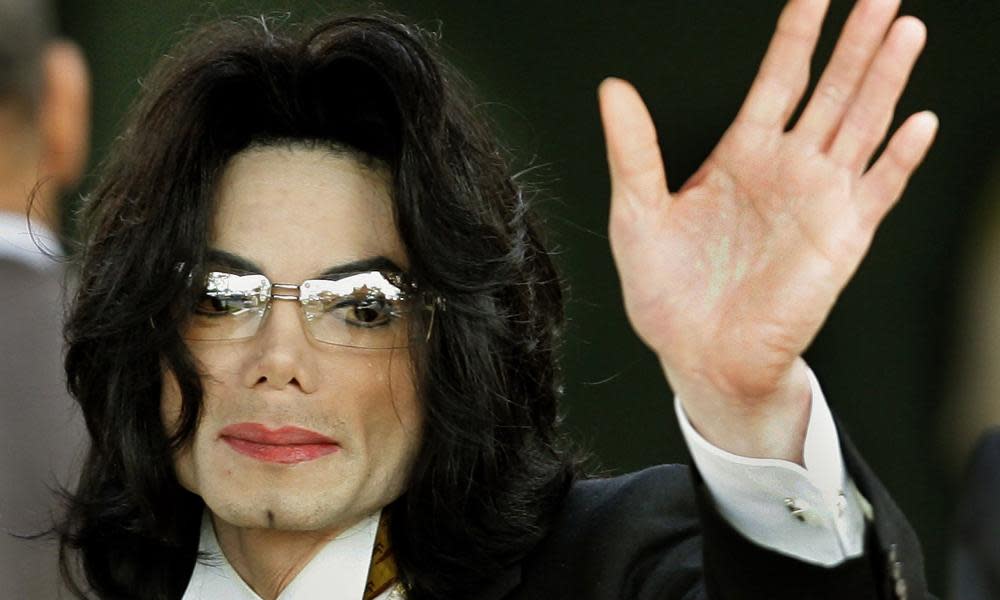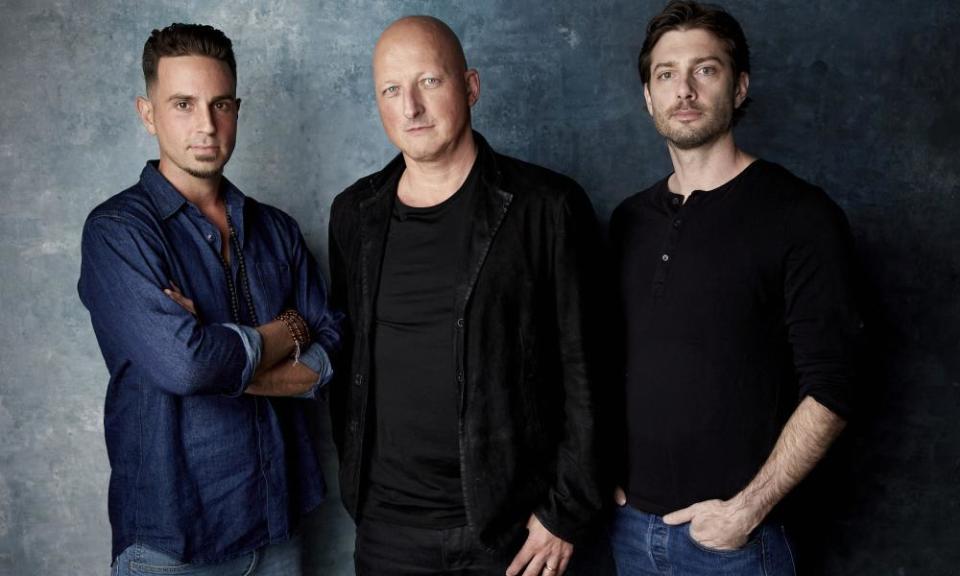This new Michael Jackson biopic will glorify a man who abused children

It has been four years since the first public screening of Leaving Neverland to a shocked, tearful American audience in a packed 266-seat venue at the 2019 Sundance film festival. The four-hour documentary, co-produced by Channel 4 and HBO, is a brutally frank and explicit account of two abusive relationships that the King of Pop, Michael Jackson, had with children: one with Wade Robson describes how the boy was just seven when the entertainer first raped him, and an earlier one with James Safechuck, who was all of 10 years old when it began. The film’s spine consists of searingly candid interviews with Robson and Safechuck and their mothers. The Guardian reported: “After the film ended, an ashen-faced crowd rose to their feet to applaud Wade and James, who arrived on stage, both visibly moved by the response.”
What had motivated me – and Robson and Safechuck even more so – to embark on making Leaving Neverland was not just the opportunity to expose Jackson by having his victims speak on camera for the first time. Here was an opportunity to bring to the widest possible audience an insight into how children fall victim to any sexual abuser, the psychology of the predator and, above all, the grooming process. Maybe we could help prevent young children from falling prey to this most scarring, crippling of crimes. Of course the fact that the child molester in this case was one of the world’s most famous men meant that a lot of people would watch. Setting fire to Jackson’s reputation, already charred around the edges by multiple allegations and payments of hush money, was not the primary goal of the documentary. But it seemed like a necessary collateral impact: if you know that your idol has abused children, should that not make celebrating his personality a little more problematic, to say the least?

Photograph: Taylor Jewell/Invision/AP
I write this because now, four years after the first screening of Leaving Neverland, a movie about Jackson is due to begin filming. It is being made by Graham King, the Oscar-winning British producer of Martin Scorsese’s 2006 crime thriller The Departed and more recently a nominee for the 2018 Freddie Mercury biopic Bohemian Rhapsody, hand in hand with John Branca and John McClain, the co-executors of Jackson’s estate. The Hollywood Reporter notes: “According to Lionsgate [the distributor], the film will address all aspects of Jackson’s life, though it is unclear how the film will address the many controversies involving the late music icon, given that the film is made in conjunction with his estate, which has defended him against accusations of sexually abusing children.” That is putting it very delicately indeed.
That gentle raising of eyebrows by the Hollywood Reporter has been pretty typical of the press’s reaction to the announcement of the biopic. In an era when full-throated outrage accompanies anything that smells of delegitimisation or insensitivity against a vulnerable group, it amounts to a deafening silence. No one is talking about “cancelling” this movie, which will glorify a man who raped children.
It is estimated that one in four women and one in six men in the US have been sexually assaulted as children. There is no reason why the statistics would be any different for the rest of the world. So the survivors of child sexual abuse are a very large and very vulnerable group, but for the most part, they stay silent. Why?
The most shocking insight of Leaving Neverland, and the most painful for any parent to accept, is that, as part of the grooming process, the predator makes the child fall in love with him, drawing them into a kind of guilty complicity in the abuse. So child sexual abuse victims will – bafflingly to the uninitiated – cover up for their abusers and protect them for years or decades. That is why Robson became a key defence witness at the 2005 child sexual abuse trial of Jackson and was instrumental in getting him acquitted. The jury believed Robson and found the singer not guilty. He now admits that he lied in court to protect his mentor and abuser.
The message is: if a paedophile is rich and powerful enough, society will forgive him
Oprah Winfrey, herself a victim of childhood rape, nailed it when she told her studio audience in a special programme with Robson and Safechuck on the night of the Leaving Neverland television broadcast in March 2019, child sexual abuse should more accurately be called “child sexual seduction”.
What the total absence of outrage accompanying the announcement of this movie tells us is that Jackson’s seduction is still a living force, operating from beyond the grave. It seems that the press, his fans and the vast older demographic who grew up loving Jackson are willing to set aside his unhealthy relationship with children and just go along with the music.
To them I say this: even if you do not believe a word of what his many accusers have said; even if you are not concerned by the police investigations and the massive payouts to halt legal proceedings, how do you explain the completely uncontested fact that for years Jackson spent innumerable nights alone in bed with young boys? What was he doing with them, alone in his Neverland bedroom, with alarm bells in the corridor? That cannot be acceptable by any measure.
To the film-makers, I say: how will you represent the moment when Jackson, a grown man in his 30s, takes a child by the hand and leads him into that bedroom? How will you depict what happens next? By sidestepping the question of Jackson’s predilection for sleeping with young boys, you are broadcasting a message to millions of survivors of child sexual abuse. That message is: if a paedophile is rich and popular enough, society will forgive him.
The NSPCC offers support to children on 0800 1111, and adults concerned about a child on 0808 800 5000. The National Association for People Abused in Childhood (Napac) offers support for adult survivors on 0808 801 0331.

 Yahoo News
Yahoo News 
